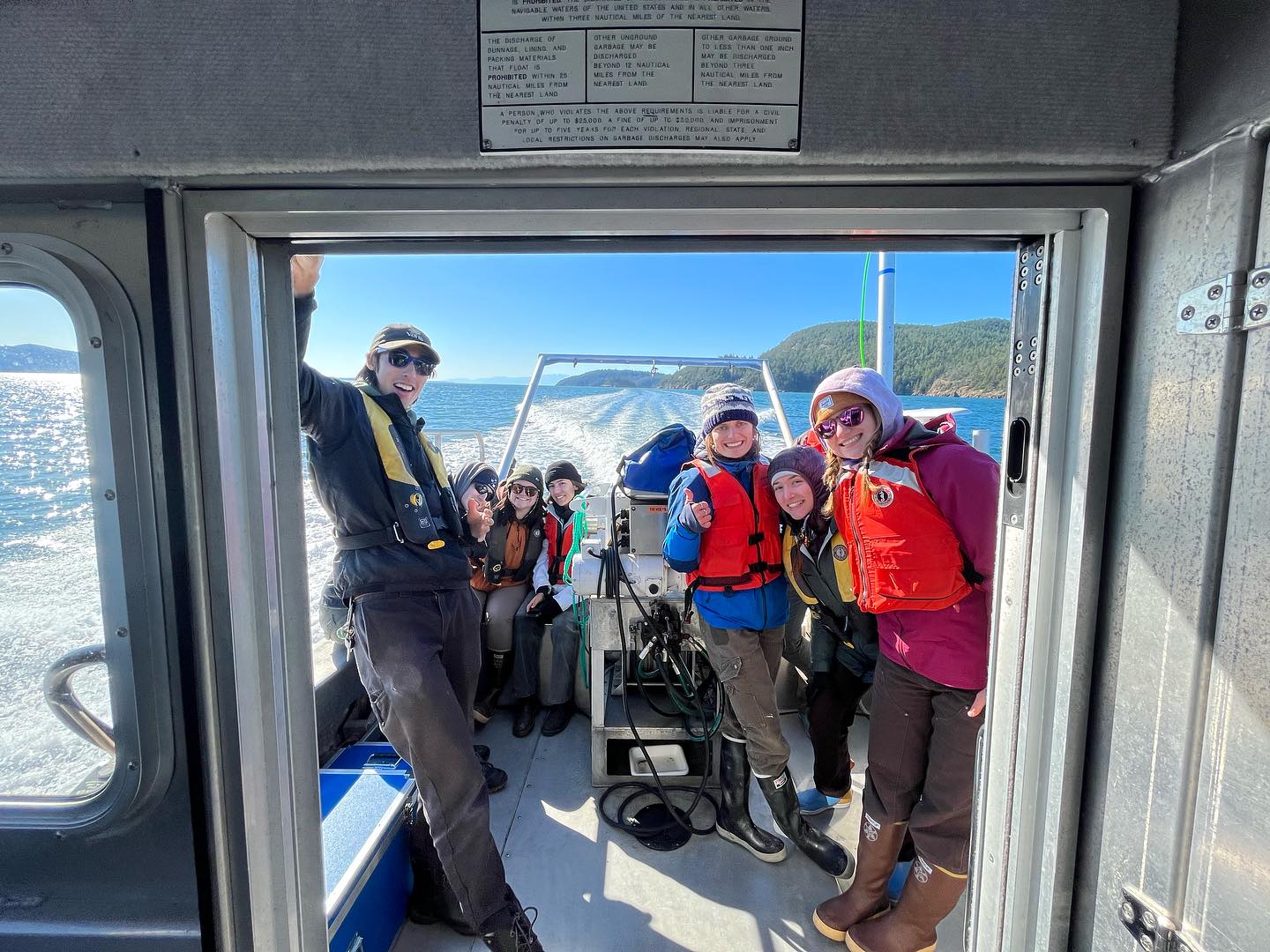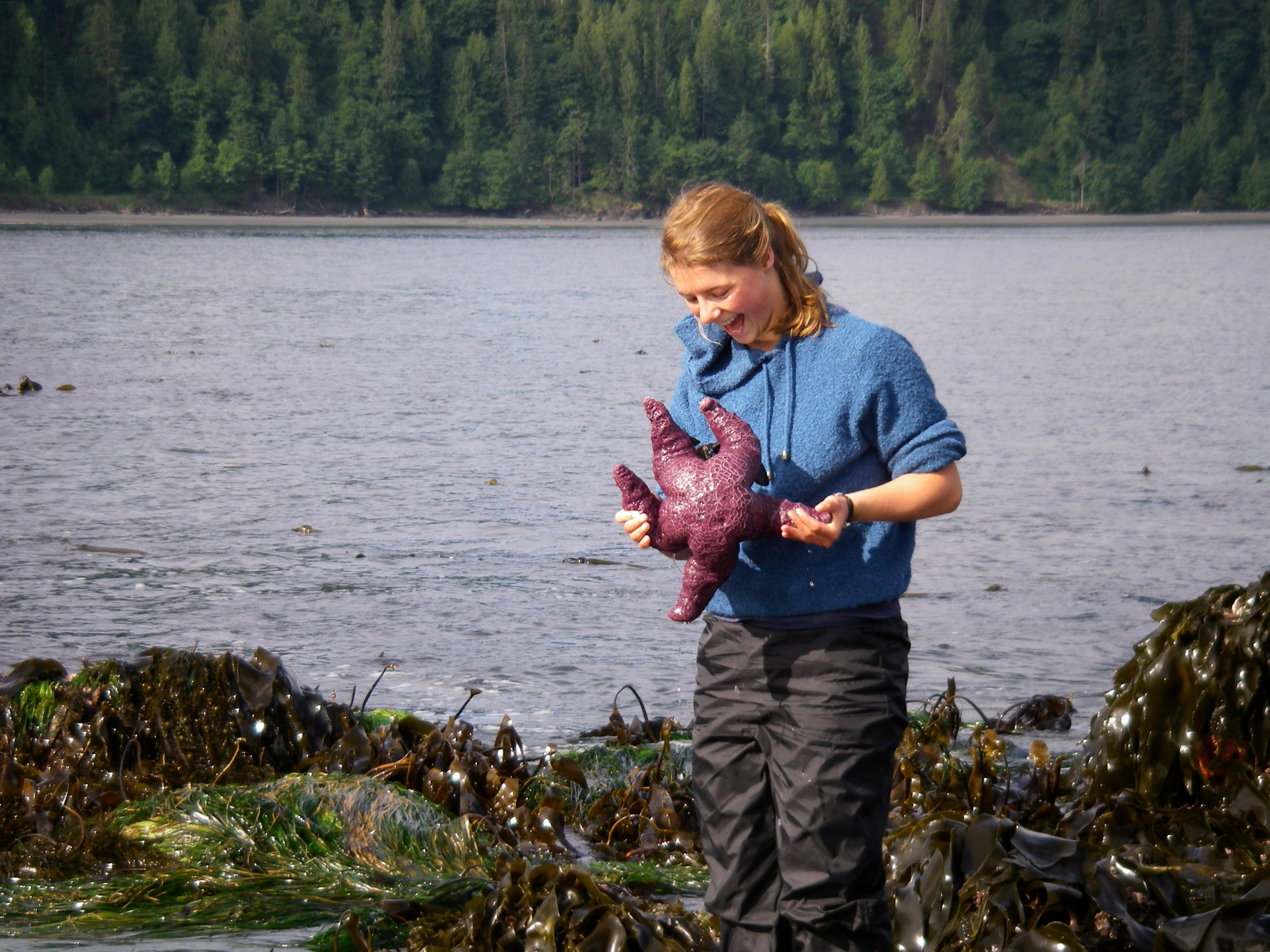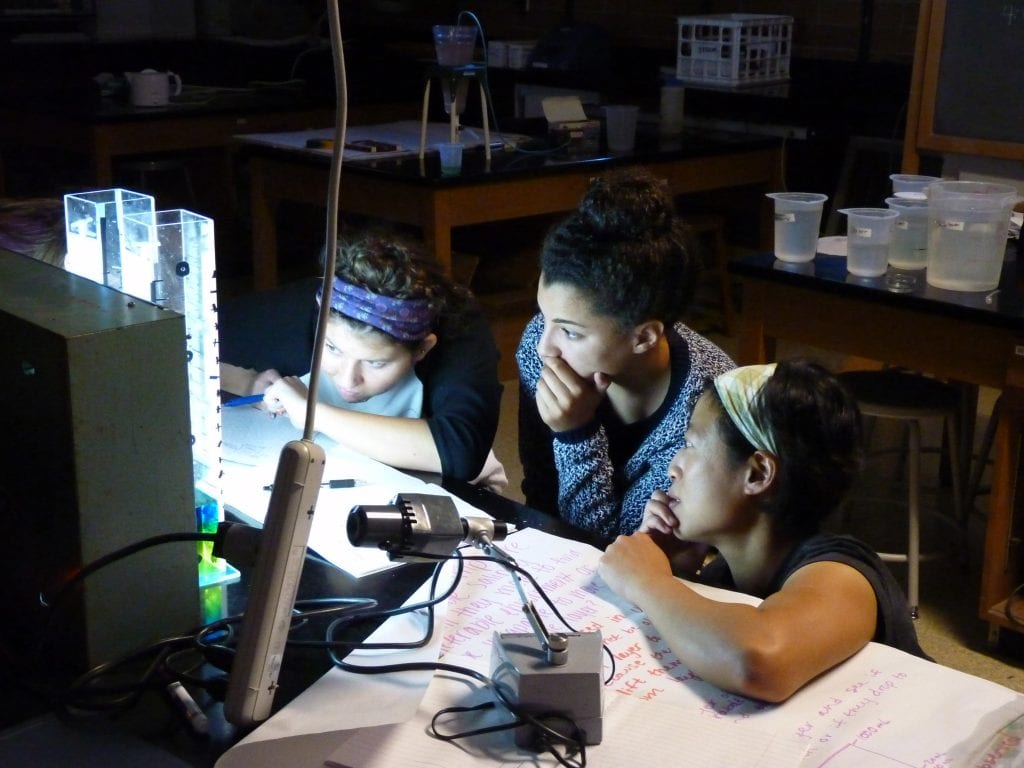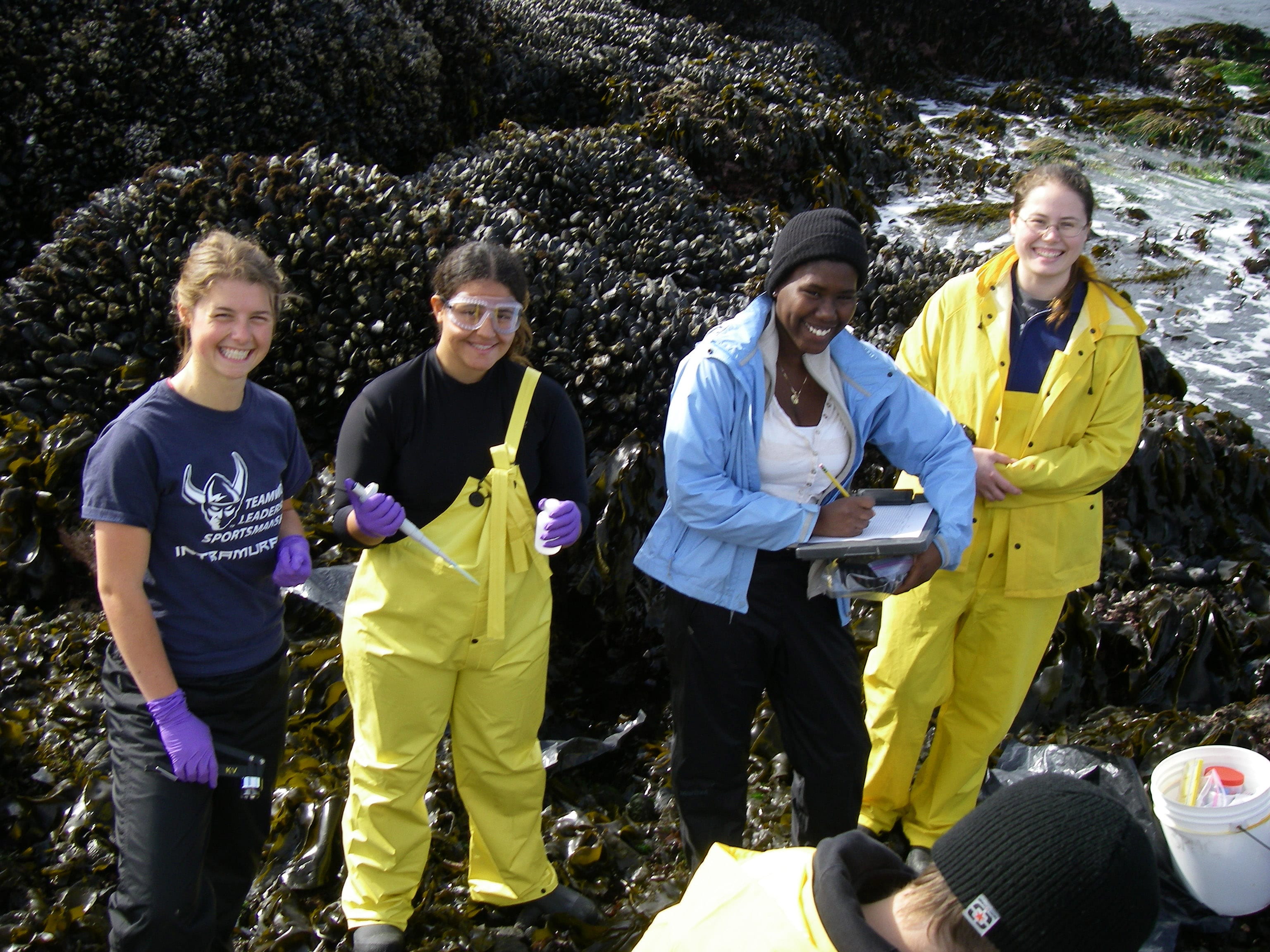About the MACS Major

In 2018, Western Washington University received funding to establish a new degree in Marine and Coastal Science (MACS) to help students become marine scientists with deep connections to marine systems, develop a clear understanding of coastal and marine processes, and the ability to address the pressing problems facing our oceans.
The MACS program accepts 30 students into the major once per year. Students should apply to the MACS major during the year that they will finish all preparatory courses. Current Western students can apply for admission to the major each fall quarter (applications are open December 15 - January 15 every year). Students who plan to transfer to Western in the fall can complete the MACS preparatory courses at their current institution, meet with the MACS program advisor, and prepare to apply to Western and the MACS major during the winter quarter (December 15-March 1st). Incoming Western students (first year students in the fall) can prepare to apply to MACS by selecting Marine and Coastal Science as their area of academic interest, meeting with the MACS program advisor, and beginning the preparatory courses required for admissions to the major. Students typically complete the MACS preparatory courses during their first two university years.

B.S. in Marine and Coastal Science
The B.S. in Marine and Coastal Science is a cohort-based, interdisciplinary, experiential program designed to provide students with the opportunity to engage in coastal and marine-focused research and active learning experiences that help them develop into confident, thoughtful, ethical scientists who are ready to address the growing challenges affecting our marine and coastal environments.
Each year, a new cohort of students starts the program together. The cornerstone of the experience is a sequence of four core marine science courses that provide a foundation understanding of the physical, chemical, geological, and biological workings of marine and coastal systems. Additional electives, including new interdisciplinary courses, build on existing course offerings in the Geology, Biology, Chemistry, and Environmental Science departments. While much of the course work happens on the main campus in Bellingham, there are opportunities for focused study at Western’s Shannon Point Marine Center (SPMC) in Anacortes, about an hour’s drive away. The opportunities include a 1-week residential research experience at the beginning of the student's time in the MACS program, a capstone research option, and selected courses offered entirely at SPMC. Specific degree requirements for the major can found under Student Resources or in our course catalog.

Program Features & Highlights
The new MACS major is a partnership between four existing academic departments (Biology, Geology, Chemistry, and Environmental Sciences) and the Shannon Point Marine Center. Program students have a unique opportunity to study marine science in an environment of truly interdisciplinary collaboration.
Program Students will:
- Study marine science as a cohort, beginning with a research experience in their second year, and continuing through the 3rd year with the core course series, and culminating with a capstone project in your the final year.
- Have opportunities to engage in mentored, hands-on research opportunities during their sophomore year through immersive study during spring break at the Shannon Point Marine Center in Anacortes, Washington, while living and taking classes on Western’s main campus in Bellingham, Washington.
- Spend time in the field, on oceanographic research vessels, and in learning laboratories and engage more engaging deeply in marine research and focused study of the Salish Sea.
Beyond the Classroom
Western’s location on the shores of the Salish Sea provides great opportunities for students to really get their feet wet (we do have boots they can borrow though, if they prefer dry feet). Students can begin their time at Western with an initial intensive one-week residential Marine Science Scholars Program at Shannon Point, where they are introduced to marine science research and start building relationships during their freshman year that will support their learning throughout their time at WWU.

Program concepts are generally illustrated with examples from local systems or are explored through case studies from our regional seas, bringing the oceans and coasts into the classroom. Students take those concepts and delve into them through sampling trips aboard one of our research vessels, or in the extensive coastal and intertidal areas accessible near the campus and the marine lab. To develop as scientists, students need to analyze and interpret data, including data they themselves have collected. They get practice in these skills through laboratory and field courses, putting it all together with a capstone research experience.
To us, beyond the classroom means our focus extends beyond the university to the people and communities whose existences are intertwined with coastal systems and resources. In this place-based approach, we work to understand the whole context of an issue, including the lands, waters, ecosystems, and human interactions with those systems. We strive to do this work in our local waters of the Salish Sea in particular. Solutions to the challenges we face must be scientifically sound, but they will succeed only through engagement with communities and decision makers. Workable solutions require problem solvers who understand the diversity of viewpoints. To this end, the program is built to bring forward many voices, and to encourage participation and success of students from all backgrounds. We work with local communities, nonprofits government agencies, and other institutions to build knowledge and understanding of marine systems, and collaboratively build tools to address problems. Students engage actively in these efforts through class projects, independent research experiences, internships, and outreach.
Want to learn more? Check out our Student Resources page, or contact us at MACSAdvising@wwu.edu.